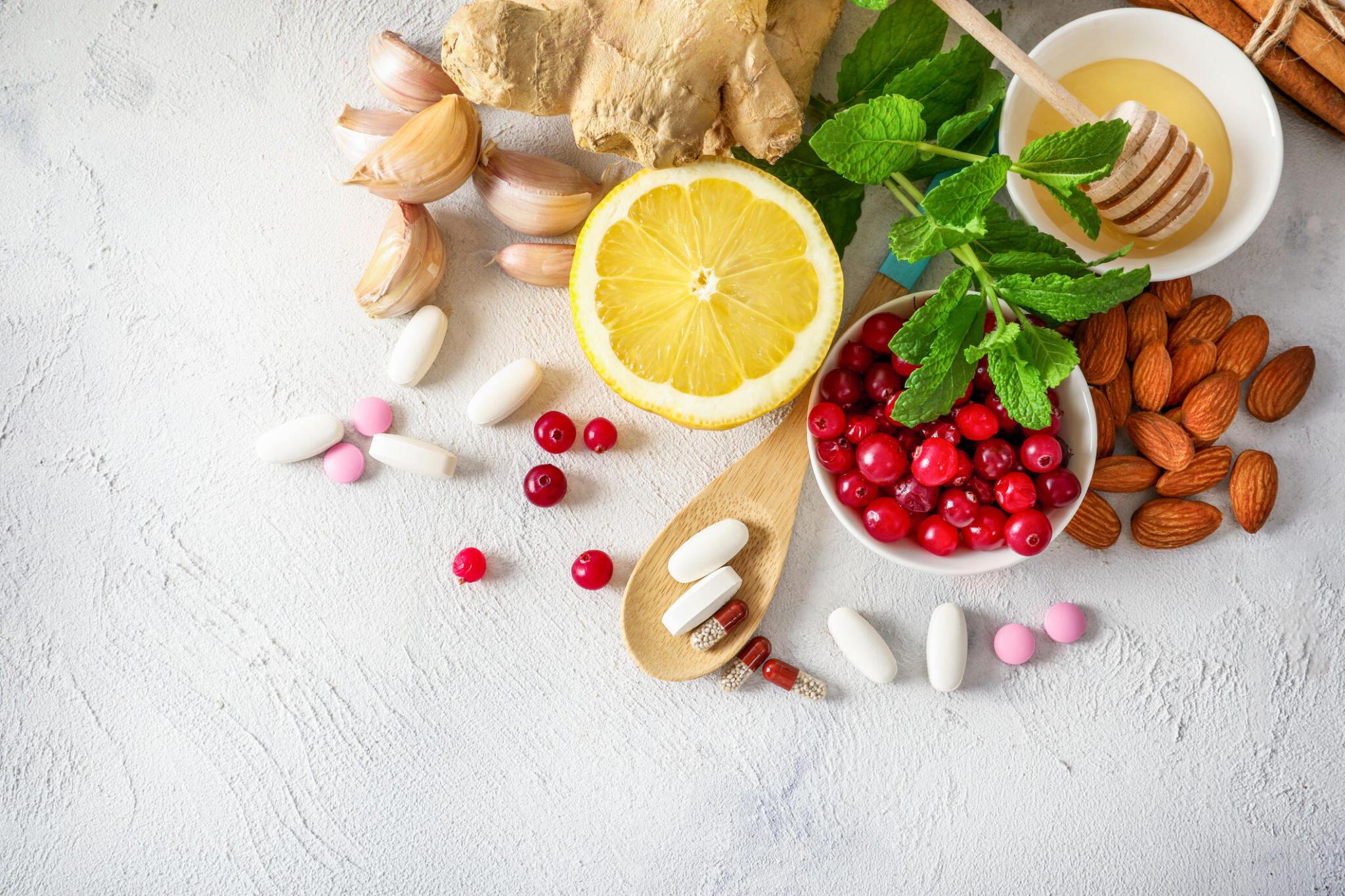Introduction:
Gut health plays a crucial role in the overall health of individuals, especially in toddlers. A healthy gut can improve digestion, absorption of nutrients, and immunity. Toddlers are still developing their immune and digestive systems, which makes them more susceptible to gastrointestinal disorders. The good news is that parents can take steps to improve the gut health of their toddlers. This article will provide some tips on how to improve gut health in toddlers.
:max_bytes(150000):strip_icc()/toddleroverview-e99eced4f40c444f9595c417f9636f38.jpg)
Tips to Improve Gut Health in Toddlers
Breastfeed
Breast milk is the perfect food for newborns and infants. It contains essential nutrients and antibodies that can help improve gut health. Breast milk contains prebiotics, which are indigestible carbohydrates that feed beneficial bacteria in the gut. Breastfeeding for at least six months can help reduce the risk of gastrointestinal infections, allergies, and other digestive disorders.
Introduce Probiotics
Probiotics are live bacteria that are beneficial for the gut. They can help improve digestion, reduce inflammation, and boost immunity. Introducing probiotics in the diet of toddlers can help promote the growth of beneficial bacteria in the gut. Some natural sources of probiotics are yogurt, kefir, and fermented vegetables. Parents can also give probiotic supplements to their toddlers, but it’s important to consult with a healthcare provider first.
Fiber-rich Diet
Fiber is essential for maintaining a healthy gut. It promotes regular bowel movements, prevents constipation, and reduces the risk of gastrointestinal disorders. Toddlers should consume at least 19 grams of fiber per day. Some sources of fiber are fruits, vegetables, whole grains, and legumes. Parents can add fiber-rich foods to their toddler’s diet gradually to prevent digestive issues.
Avoid Processed Foods
Processed foods contain high levels of sugar, salt, and unhealthy fats that can disrupt the gut microbiome. These foods can also lead to inflammation, which can damage the gut lining. Parents should limit the consumption of processed foods and offer healthier options like fruits, vegetables, and whole grains.
Reduce Antibiotic Use
Antibiotics are essential for treating bacterial infections, but they can also disrupt the gut microbiome. They can kill beneficial bacteria and allow harmful bacteria to grow, leading to digestive issues. Parents should only use antibiotics when necessary and follow the prescribed dosage.
Manage Stress
Stress can also affect gut health. Toddlers can experience stress from various sources like changes in routine, separation anxiety, or exposure to new environments. Stress can lead to digestive issues like diarrhea and constipation. Parents should provide a stable and nurturing environment for their toddlers to help reduce stress levels.
- Kid-friendly gut-healthy recipes: These are recipes that are easy to prepare and contain ingredients that promote good gut health. They often include foods high in fiber, vitamins, and probiotics, such as fruits, vegetables, whole grains, and fermented foods like yogurt and kefir.
- How to heal your child’s gut: This involves identifying the cause of the gut issue and making changes to the child’s diet and lifestyle to promote healing. It may also involve the use of supplements or medications, depending on the severity of the issue.
- Gut health and child behavior: There is a growing body of research that suggests a strong link between gut health and behavior in children. A healthy gut can help reduce inflammation, boost the immune system, and promote the production of neurotransmitters that affect mood and behavior.
- Gut health for toddlers: Good gut health is important for children of all ages, including toddlers. A healthy gut can support overall growth and development, boost the immune system, and help prevent chronic diseases later in life.
- Children’s gut health supplements: These are supplements that are designed specifically for children and can help support gut health. They may contain probiotics, prebiotics, or other beneficial nutrients that promote healthy digestion and reduce inflammation.
- How to heal toddler gut after antibiotics: Antibiotics can disrupt the balance of bacteria in the gut, which can lead to digestive issues. To heal a toddler’s gut after antibiotics, it is important to replenish the gut with probiotics and prebiotics, avoid processed and sugary foods, and incorporate more whole foods into their diet.
- How to improve digestion in child: This can be done by ensuring the child is eating a balanced diet that includes plenty of fiber, staying hydrated, encouraging physical activity, and reducing stress. Probiotics and digestive enzymes may also be helpful.
- Gut cleanse for child: A gut cleanse is a temporary diet and lifestyle change designed to improve gut health. However, it is not recommended for children as it can be too restrictive and may not provide all the nutrients they need for healthy growth and development. Instead, focusing on a balanced diet and healthy lifestyle habits is the best way to support a child’s gut health.
How can I improve my toddler’s gut health naturally?
There are several ways to improve a toddler’s gut health naturally, including:
- Feeding them a diet rich in fruits, vegetables, whole grains, and lean proteins.
- Limiting their intake of processed foods and sugary snacks.
- Encouraging them to stay hydrated by drinking water and avoiding sugary drinks.
- Promoting regular physical activity.
- Ensuring they get enough sleep.
- Introducing probiotic-rich foods or supplements into their diet.
What are the signs of poor gut health in toddlers?
Signs of poor gut health in toddlers may include:
- Constipation or diarrhea.
- Abdominal pain or discomfort.
- Bloating or gas.
- Food intolerances or sensitivities.
- Skin rashes or eczema.
- Fatigue or irritability.
- Reduced appetite.
How can I improve my 2 year old’s digestive system?
You can improve your 2 year old’s digestive system by:
- Offering them plenty of fiber-rich fruits and vegetables.
- Avoiding sugary or processed foods.
- Encouraging regular physical activity.
- Ensuring they get enough sleep.
- Offering them plenty of water to stay hydrated.
- Introducing probiotic-rich foods like yogurt or kefir.
- Making sure they have regular bowel movements.
What foods have probiotics for toddlers?
Foods that have probiotics for toddlers include:
- Yogurt
- Kefir
- Fermented vegetables like sauerkraut or kimchi
- Miso
- Tempeh
- Kombucha
- Pickles
- Soft cheese
It’s important to note that not all probiotic-rich foods may be suitable for every toddler, so it’s best to consult with a pediatrician or a registered dietitian before introducing new foods into your toddler’s diet.
Why is gut health important for toddlers?
Gut health is important for toddlers as it affects their overall health and well-being. A healthy gut helps in better digestion, absorption of nutrients, and supports a strong immune system. It can also have an impact on mood, behavior, and cognitive development.
How can I tell if my toddler has poor gut health?
Some signs of poor gut health in toddlers include constipation, diarrhea, bloating, gas, and stomach pain. Toddlers with poor gut health may also have food intolerances, allergies, eczema, and a weak immune system.
What are some kid-friendly gut-healthy foods?
Some kid-friendly gut-healthy foods include yogurt, kefir, sauerkraut, pickles, miso soup, bone broth, and whole fruits and vegetables.
Can I give my toddler probiotics?
Yes, probiotics can be beneficial for toddlers. However, it is recommended to consult a pediatrician before giving probiotics to toddlers, especially those with underlying medical conditions.
How can I heal my toddler’s gut after antibiotics?
After a course of antibiotics, it is important to restore the healthy bacteria in the gut. This can be done by giving probiotics, eating fermented foods, and consuming prebiotic-rich foods like bananas, oats, and sweet potatoes.
Are there any supplements for children’s gut health?
There are various children’s gut health supplements available in the market, such as probiotics and prebiotics. However, it is important to consult a pediatrician before giving any supplements to toddlers.
How can I improve my toddler’s digestion?
Some ways to improve digestion in toddlers include giving them plenty of fiber-rich foods, encouraging them to drink water, avoiding sugary and processed foods, and promoting regular physical activity.
Is gut cleansing necessary for toddlers?
Gut cleansing is not necessary for toddlers. Instead, it is important to focus on a healthy and balanced diet, probiotics, and prebiotics to support a healthy gut. It is also important to consult a pediatrician before trying any gut cleansing or detox methods.
Conclusion:
Improving gut health in toddlers is crucial for their overall health and well-being. Parents can take simple steps like breastfeeding, introducing probiotics, and offering a fiber-rich diet to promote the growth of beneficial bacteria in the gut. Avoiding processed foods, reducing antibiotic use, and managing stress levels can also help maintain a healthy gut microbiome. Parents should consult with a healthcare provider before making any changes to their toddler’s diet or medication regimen. By implementing these tips, parents can help their toddlers develop a strong and healthy gut.




